HOME | ABOUT US | MEDIA KIT | CONTACT US | INQUIRE
HOME | ABOUT US | MEDIA KIT | CONTACT US | INQUIRE

Think for a moment about where women can rise to the top of their professions. If the first roles at the top of your mind were nursing and teaching, you might want to bone up on what’s happening in the world the rest of us live in.
Evidence is mounting that women’s progression into the executive ranks is losing steam. Not with this group.
Look no further than the 2020 class of Women Executives-Kansas City. High achievers, all, but not a one of the 12 hails from the ranks of education or health-care delivery.
Rather, they represent sectors long-dominated by men, especially in executive roles, and particularly construction and engineering—but also in financial services, legal services, athletic-related administration and sports broadcasting, health insurance and state-level government.Each has earned her place of recognition with WeKC.
The personal story of each, however, represents but a single data point within their sector metric. And you know what they say about the difference between anecdote and data.
In some ways, this year’s honorees remain outliers within that previously referenced Real World.Support for that can be found in the latest Women in the Workplace assessment from the global consultancy McKinsey & Co. Drawing on the workplace experiences of more than 40,000 people representing 317 firms, analysts there found that between 2015 and 2020, the progression of women up the corporate ladder actually ebbed this year. It attributed that largely to the workplace effects of economic lockdowns in the face of a global pandemic. Specifically, by administrative tier:
Women accounted for 38 percent of front-line managers, the same level as in 2018 and 2019 (and up just a point
from 2015–2017).
They lost a step in senior management/director positions, to 33 percent, down a point from 34 percent in both 2018 and 2019.
At the vice president level, another one-point drop, to 29 percent. This, following a rise from 27 percent to 30 percent between 2015 and 2019.
One category where progress remained strong was senior vice president, up from 23 percent in 2015 to 28 percent this year.
But at the all-important C-suite level, after a run from 17 percent to 19, then 20 and 22 percent from 2015–2018,
the numbers dipped back to 21 percent last year and this.
If you’ve been reading carefully between all those lines, and you’re sensing that something just isn’t adding up, you are correct: Some of the key areas of retreat were showing up well before a little bug from Asia started throwing its weight around in the early 2020.
Despite gains for women in leadership, the analysis concluded, the “broken rung” was still a major barrier as early as 2019. And by this year, “for the sixth year in a row, women continued to lose ground at the first step up to manager,” the report said. “For every 100 men promoted to manager, only 85 women were promoted—and this gap was even larger for some women: only 58 black women and 71 Latinas were promoted. As a result, women remain significantly outnumbered in entry-level management.”
And the trendlines, the report said, can’t be explained by attrition alone.
You don’t have to have a degree in data science to discern the implications for that in the years to come: Fewer women in entry level today implies fewer available for promotion tomorrow.
Relevant, perhaps, but not determinative for the 12 women your about to meet with the 2020 Women Executives-Kansas City. The numbers above reinforce our commitment to showcasing this level of achievement, and this level of achievers.
Against the odds, they’ve staked their collective claim to key leadership roles with some of the region’s most influential companies.
We invite you to join us in saluting their achievements.
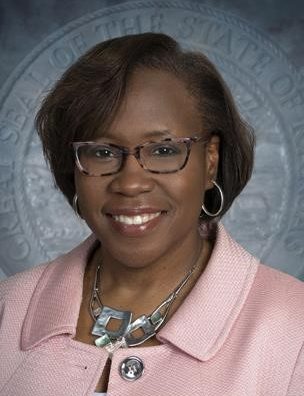 DeAngela Burns-Wallace
DeAngela Burns-Wallace When it comes to the ability of women to overcome hurdles to executive careers, the real issue isn’t about their experience, says DeAngela Burns-Wallace: It’s about the way the racetrack has been laid out. “It’s about our system and society and roles we put women in,” says Burns-Wallace, whose role in state government can be likened to that of a corporate COO. “It’s about the assumptions made and hiring practices that ask questions and create unintended biases to women being successful in the workplace.” It is, she says, a very personal space as a woman of color, and a single mother of a teenage son. Too many times in a career that has taken her through the ranks of foreign service, academia and now state administration, there simply were no role models who looked like her.“That’s changing,” she says, “but not at the pace you’d suspect when looking at the rate of women receiving college degrees.” So in addition to the proscribed duties of her office, she seeks to be that role model for others. “You’ve got to lead from the front,” Burns-Wallace says. “That becomes a game-changer when you see the value of a diverse work force, not simply because ‘we have to do this’ or because the data plays a certain way. It leads to a diverse work environment with different perspectives.” A Kansas City native, she recalls her first brush with diversity, coming at a time when the concept had yet to fully form in her head. She’d gone from a nearly all-black grade school to a nearly all-white high school, and her takeaway from that would shape much of her career path—first through college at Stanford, then working abroad for the State Department before coming back to her roots with a combined 15 years in administrative roles at the University of Missouri, then the University of Kansas. The latter put her in the contact circle of a former state senator—now governor—Laura Kelly. When she got the call last year inquiring about a state role, “it was a moment, I’ll tell you that,” Burns-Wallace says. Leaving KU “was one of the hardest things I ever had to do. We were doing amazing work with student retention and graduation rates rising. That is hard work in higher education to make those numbers move.” But she’s now part of a bigger mission, completely buying into Kelly’s vision for the state: “To hear from a leader that we’re going to do this work, it won’t be easy, it won’t be fun, but it’s the right thing to do and it’s going to help change lives—it was a truly unique opportunity that I’m thankful for.”
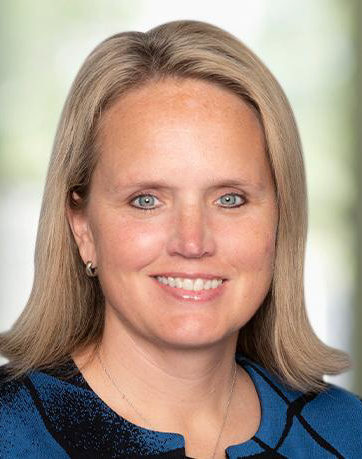 Dana Foote
Dana FooteChallenges? Dana Foote has seen them. She was adopted as an infant, by blue-collar parents with no college degree. When her parents divorced, her favorite place and influence was her grandparents’ farm in Colorado. There, she learned the farm-kid work ethic from her grandfather; her grandmother taught things like crocheting and cooking, balancing some of the more mundane farm-life chores. While at Hastings College as a music major, she formed a friendship with a girl who was struggling with her entry-level accounting coursework. “I looked at her book, and it just clicked for me,” Foote says. “It just made sense.” She soon was enrolled in her first accounting class, then picked it up as a dual major to retain her music scholarship. “I knew about the Big Six accounting firms at the time; I’d heard
that’s where the best majors went,” Foote says, reflecting on her own zeal for competition. “I thought, ‘If I want to be the best, I have to work for a Big Six firm. And within that discipline, she embraced the audit function of accountancy.It had no special appeal at first, other than getting her into a firm, but “once I became part of it, I liked the integrity that comes with it, and the respect that comes from being an auditor.” At KPMG, she says, the organizational embrace of integrity, courage and excellence were key elements of that work. “Once I was in, I never wanted to change.” The gender mix entering the firm back then was roughly 50-50, but it was clear that leadership then was a man’s world, with no female partners. That’s changed significantly, and will continue to as the firm extends its diversity initiatives. “But before you go to the numbers,” Foote says, “you have to start with the framework and best practices. I think we still hire 50-50 out of college, but what are we doing to keep those ladies with us? That’s a big part of my job as a partner—to show that they can have a family—I have two daughters, eighth and third grade—and you can have it all and be successful.” The example she sets for her girls extends to her own health; Foote was diagnosed with multiple sclerosis early in her career. It would not stand in the way of her rise to partner, business unit practice partner, audit leadership team and founding member of the firm’s Abilities in Motion initiative. “At the time, I thought this is the end, what is this crazy thing I don’t understand?” she says of her diagnosis. “I didn’t want to let anybody down, or let it define me, so I kept it secret until I became a partner and told only a few close associates. But eventually, I knew that I needed to lead by example and let folks know that even with a disability, with the support of the firm, it doesn’t have to impact their career.”
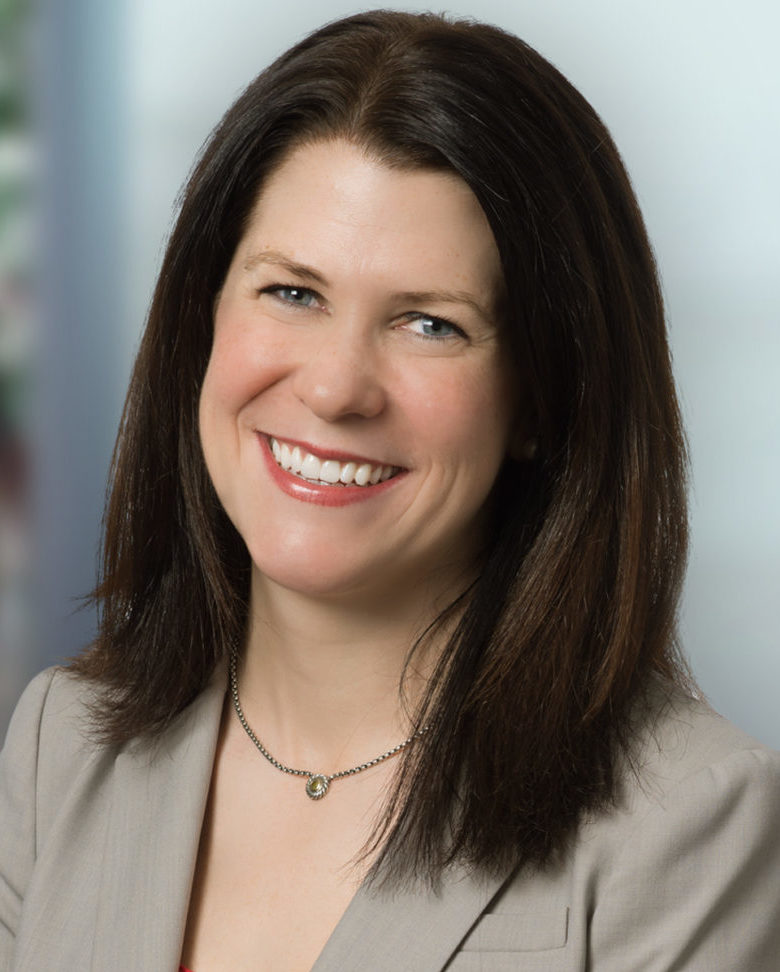 Mary Jane Judy
Mary Jane JudyIn what seems like our never-ending struggle to adjust attitudes about women in business leadership roles, Mary Jane Judy has developed a uniquely personal approach: “My goal,” says the co-managing partner of Polsinelli’s Kansas City office, “is to raise four sons who don’t think twice about a woman being the chair of a committee, the CEO of a company, or the president of the United States.” Now that’s leadership. That Judy today manages the city’s largest law firm is in part the result of upbringing, acting on a hunch and keeping her ears open when opportunity knocked—literally. The latter came when she was still at Mizzou. A visitor arrived at her parents Kansas City home; it was 28-year-old Cathy Jolly, campaigning for a seat in the Missouri House. “She and my mom got to talking,” Judy says, “and I remember my mom calling and saying “You have to see about interning for Cathy.” She did, got the gig and spent two days a week in Jefferson City during the 2001 legislative session. “I loved it,” Judy says, “and Cathy continued to be a mentor all through law school and when I moved back to Kansas City.” It would be the first of many steps on a path her parents had helped chart for her. “Although my folks didn’t ever really push me, they knew my strengths and made suggestions they thought would fit,” Judy says. “More importantly, they always put an emphasis on service, being on the lookout for ways to help others, and really living a life of kindness, and just doing the right thing.” Her internship eventually led to law school, applying on something of a whim inspired by the Jeff City experience. “Seven years in Columbia, (my license plate is 7YRTGR, always have to explain it was for two degrees),” she says. Two years in, and realizing an affinity for transactional work, she did a summer stint at Polsinelli “and haven’t looked back since. So, I suppose, it wasn’t until I was actually doing it that I realized it was the right path.” With office leadership partner Greg Kratofil, she steers the mother ship of a national law firm with 900 attorneys in 21 locations; about 225 of those lawyers are based here. In addition to that, and raising the four boys, she’s been on a number of civic boards, including those of the Chamber and formerly with KC parks. “Getting back to the values from my folks, it has always been a priority to be involved, serve our communities. “I am the type that voluntarily attends political fundraisers (not all of them). So, when Chase Simmons took over as CEO, KC was the only office (and the largest) without its own office managing partner. My involvement in the community and within the firm, I think, guided his decision to ask Greg and I to serve as co-OMPs. My board positions were all things I liked to do—not stepping stones for my current role.”
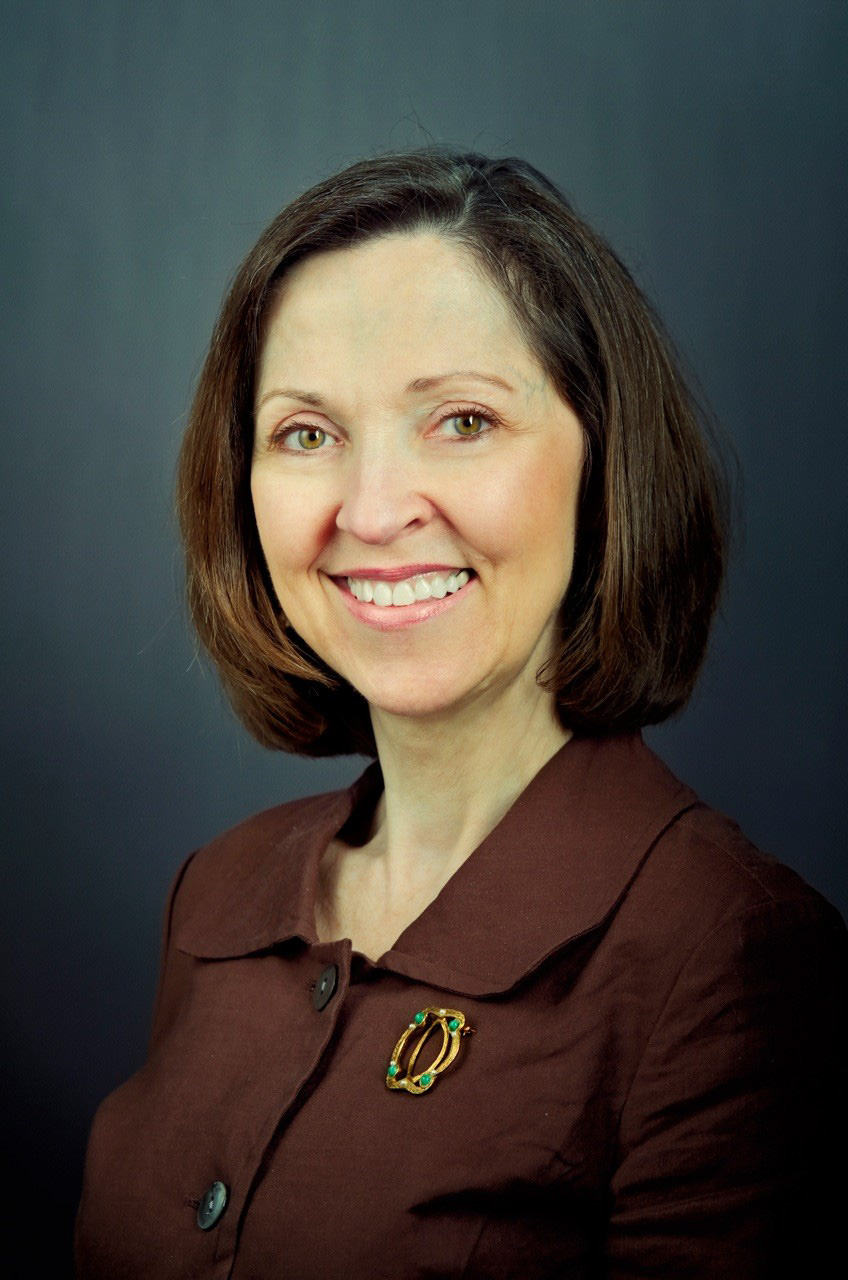 Michelle Stark Kaufman
Michelle Stark KaufmanThe past never really does leave us, does it? Just ask Michelle Stark Kaufman, whose parents were raised during the Great Depression. When everything fell apart for her paternal grandfather’s farming interests, “they had to move to the poorest farm he owned, had to get by with catalogue pages for toilet paper,” she says. By contrast, her maternal grandfather was a lawyer representing railroads and banks, and business was good. Despite different backgrounds, she says, each parent “learned similar lessons: neither felt like kids should have things handed to them, and nobody was better than anyone else.” She would carry those values into her own legal career, burnished with the competitive experience of being the oldest of six children in their Fort Dodge, Iowa, home. “It was chaos and competition,” she says, “but the values we learned were to very much give back, you’re not more special, and you need to earn your place in this world.” That she’s done at Dentons, the world’s largest law firm. Her path there wasn’t a straight line out of Iowa State University; she did a spin on the West Coast as a graphic artist, but realized the skills that made her a standout in Iowa were behind the curve in Los Angeles. “Training,” she muses, “can take you only so far in art. You have to be born with a talent.” Not interested in being just OK in any chosen field, she took an aptitude test that suggested her strengths might align with a law career, then she earned her JD at UMKC. Her first job at what is now Stinson LLC provided training not unlike the specialty rotations awaiting med-school grads. During those, she found that transactional law had an appeal—the adversarial nature of litigation was a turn-off—and she would go on to establish a solid book of business with large health-care clients. It wasn’t easy at first—there were times the men in the room assumed she was there to take orders for coffee. “At the highest levels, this is still male-dominated, but it’s much better than 30 years ago,” she says. “But the more women I see in leadership roles, the less odd it becomes.” She was, in fact, the first woman to attain partner status at the Kansas City office of Dentons predecessor firm, and recalls meeting a new associate who blurted out ‘Oh, you’re the icon!’ “I’d been around the longest of any of the women in our office,” Kaufman says, “but it did not occur to me to ever be called that.” Kaufman also has a deep history of civic engagement, harkening back to the lessons of her youth. “My parents, they gave back a lot; they volunteered a lot,” she says. “My dad always said, especially as a lawyer, you have some tools and the ability that maybe the ordinary person wouldn’t have with your legal skills that can benefit charitable organizations, your community, your church. It’s your civic rent, part of what you do to make your community better.”
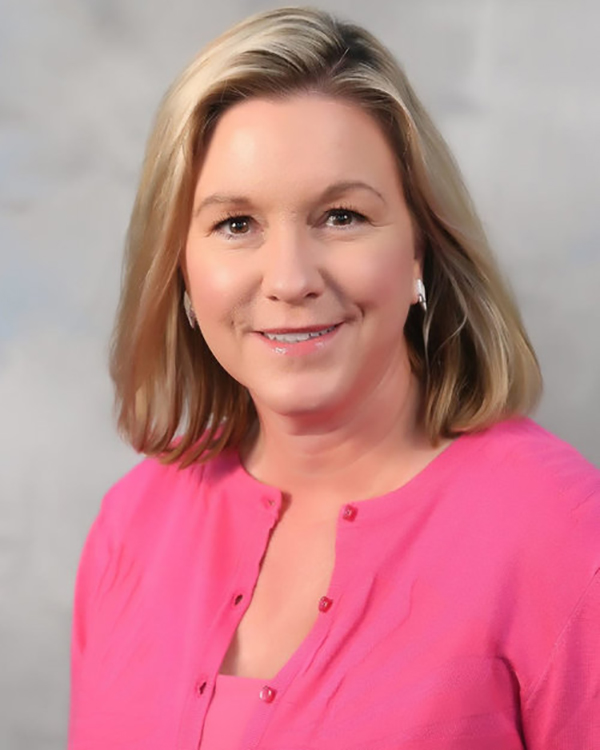 Kathy Nelson
Kathy NelsonTo borrow a courtroom aphorism, we’ll stipulate that Kathy Nelson has amassed more career honors than we could pack onto this page. That covers a range of professional, civic and philanthropic kudos—including a Cristo Rey Dancing With the Stars grand championship—and most recently, induction into the Missouri Sports Hall of Fame. All of those cover just the past 10 years, before she left an award-winning career in television broadcasting to lead the region’s efforts to organize, sponsor and attract big-time athletic events. Instead, let’s explore the foundations of that success: KC-born and raised. Parochial school, Winnetonka High and Truman State graduate. Dad worked for TWA for more than 40 years; Mom at Western Auto, then Ferrellgas. And from them, an appreciation for “volunteering, at our church, our schools, our activities and within their careers,” Nelson says. “My brothers and I were right there with them most of the time, so
I learned early on the importance of participating and giving back.” That would translate in opportunities to lead, early, on basketball teams, in school clubs and with other extra-curricular activities. “I was always encouraged to be involved,” Nelson says. “That has and continues to shape who I am, to step in and participate.” A brief college flirtation with chemistry ended when other students and professors suggested she had a knack for TV and radio. It was an easy switch. Still, she says, “never did I imagine I would take my love for sports, both as a participant and spectator, and make a career from it.” She spent 20 years in broadcasting, doing live sports television production—high school and college events, NFL, MLB and NBA games and more. That work, and her service orientation, led her to the sports commission, where the late Kevin Gray, her predecessor, encouraged her to become a program director in 2010. “I wasn’t sure I was ready to leave my 20-plus-year television career,” Nelson says, “but I was ready for a calmer lifestyle.” And to show her two daughters “mom was cap-able of making a significant career move while still being there for them.” The commission organizes the Kansas City Mara-thon (its chief source of revenue), and works to bring events like the Big XII basketball tournaments and other high-profile events to town, including Kansas City’s bid to become a 2026 FIFA World Cup host city. Engagement with sporting executives, male and female, has taught her that as women, “we have a long way to go to equality on the field, in the boardroom, and in previously male dominated roles, but it has gotten better,” Nelson says. “In our industry of sports/events there are still very few females with the title President/CEO. We have to continue to look for and provide opportunities for gender balance. The lift-as-you-rise mindset is crit-ical for women in executive roles.”
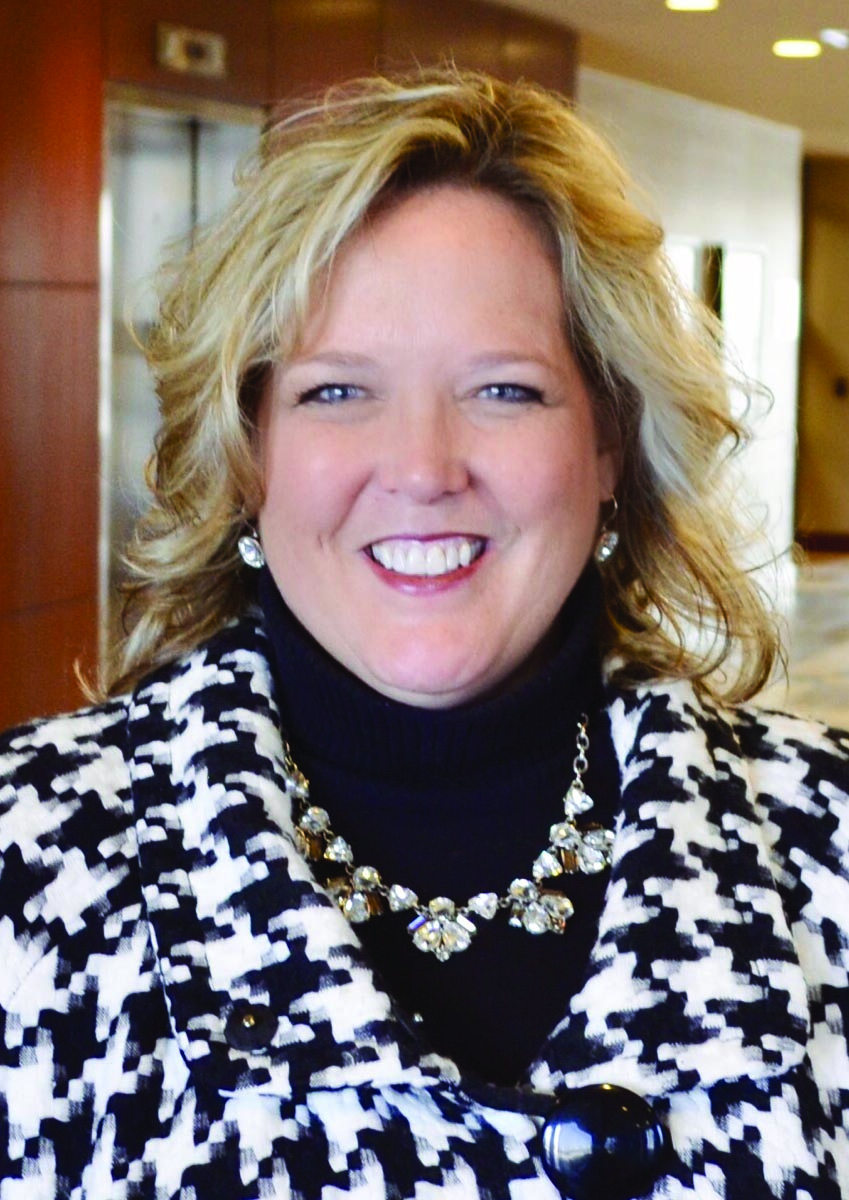 Gayle Packer
Gayle PackerTo the untrained eye, the “P.E.” you see after the name of a professional engineer may not mean a lot. In the engineering field, it speaks volumes, and you see it often in combination with “CEO.” The lack of that distinction, though, has never held Gayle Packer back. Neither has being a woman in a business sector long the dominion of men at all levels, but especially in the C-suite. Then again, Packer says, “the concept of being the CEO was never really on the radar for me because I didn’t think it was possible without that “P.E.” after my name.” Yet here she is, leading one of the nation’s biggest environmental-engineering companies, with more than 150 offices and 5,000 employees nationwide at Olathe-based Terracon. So, no, it was not a traditional path to leadership within the engineering sector. Packer began her career in agricultural law, and that lasted for about five years with a pair of firms in Kansas City. Then an entrepreneurial itch set in. She pondered various business models, focusing on a pair of possible Internet ventures in homeowner services and catering. When a gig opened up for a contract-review position at Terracon in 2004, she landed an offer, figuring she could work that for 12 to 18 months while refining her own business plans. “But I moved out of legal about a year later, and more to the business side,” she says. “I really learned the business side through a business lens, not a technical lens.” And in reporting to CEO David Gaboury, she was able to demonstrate her command of the corporate model. As general counsel, then chief administrative officer, she orchestrated the firm’s rapid expansion with dozens of acquisitions. When the succession plan was announced that designated her the next CEO, “there certainly was some skepticism of that, not just from our own employees on some levels, but the industry, as well: ‘She’s not an engineer,’” Packer says. “I was able to overcome that internally, and I think I’m overcoming it at an industry level. When you’re the CEO, you don’t have to write those geotechnical engineering reports.” To that role, she brings a value set forged by family and faith in her native Ohio. She grew up on an orchard farm with both sets of grandparents within a mile of her parents home, and their emphasis on integrity and caring for those in need was profound. She’s confident that her status as a female CEO in the engineering world won’t remain an outlier in the years to come. Efforts by schools and organizations like the Girl Scouts to encourage young girls to consider STEM careers eventually will pay off, she says. “We’re just starting to see the results of that,” Packer says, “but we’re not solving today’s problem—we’re solving for the future.”
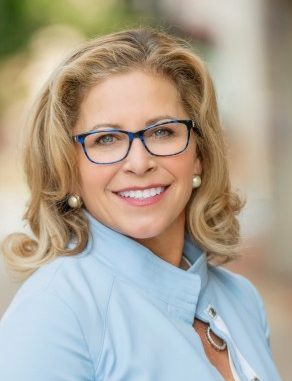 Pam Popp
Pam PoppShe had four older brothers growing up, and they made an impression. “I always felt the need to work harder to catch up and keep up in school, in sports, in life,” says Pam Popp, president of Lockton Retirement Services, which manages retirement-plan funds worth a combined $80 billion. The lessons didn’t end with that riot of Type-A personalities at home. “My mother taught me to be grateful and my father taught me principles—to stand up for what I believed in and to stand up for others who didn’t have a voice.” That’s been the framework for her success at Lockton, the world’s lar-gest privately held independent insurance brokerage and benefits advisory. She got into that work coming out of Indiana University, Popp says, because “finance was ‘the family business,” as several of the siblings followed her father into financial services. For her, though, there was a difference. Not a lot of women were in financial services then, and even today, executive roles tilt toward men. That difference would not define her. “Back then, I thought more about opportunity than obstacles and just worked hard to add value and make a difference,” she says. “I was raised to believe I could do or be anything, and so it never occurred to me that my opportunities could be limited by gender.” After more than 25 years with AON and J.P. Morgan, she joined Lockton in 2014, so she’s been able to work for what she calls “great companies where opportunities were created for those who worked hard and delivered results.” But “I also have had some not-so-great experiences—for example, early in my career, a senior manager “explained” to me that I didn’t need to make any more money because I had a husband with a good job. Needless to say, I didn’t work there long and instead have focused on working in organizations that value empowerment, leadership and growth. Where continuous devel-opment and learning are valued.” In early 2019, she added the duties of Chief Inclusion Officer at Lockton, helping set the value of those qualities in the work force. “I have mentored more people in the last decade or so than I can even recount—it is so rewarding to help someone accomplish a feat they weren’t certain was possible,” Popp says. “To get a great assignment, a new client, a new job, a raise—you name it, and the pride and confidence that instills is priceless. And to be a part of that is what drives me.” Much being done in financial services to drive more diversity and inclusion, she says, driven by a sense of social equity, a real business need for innovation and quest for additional talent. “Can we do more? Always!” she says. “When we work so hard to bring diversity to our organizations, we have a place where everyone is valued and their voices are heard in solving business and community challenges. This creates the sense of belonging that we all strive to find.”
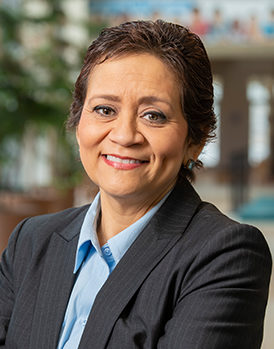 CiCi Rojas
CiCi RojasDarn few people raised in Kansas City, Kan., wear the badge of privilege, and CiCi Rojas was no different, in their parlance, as a native Dotte. At one point in life, she was a young, single mom. At others, she had to refocus from family and career and fend off a pair of nasty attacks of cancer. But the influence of her upbringing, her years in the world of business associations—including leadership roles at national and local Chambers of Commerce, and the Central Exchange here in Kansas City—and, finally, her own entrepreneurial vision have combined to bring Rojas to a satisfy-ing place in life: She’s the co-owner, with her husband, of Tico Sports and Tico Productions, tapping into the fastest-growing consumer segment of the population by delivering diversity-driven entertainment options. “I have always loved the association management world and the ability it gives you to champion small business and women to advance across all sectors,” says Rojas. “I had always wanted to begin my own entrepreneurial journey to apply what I learned, my executive experience, and my network to give me an edge in starting a business, but the timing was never ideal.” When her husband, Oscar, suggested turning his photojournalism skills into business, she says, “I believed it was the best way for me to achieve my aspirations as well when the time was right for me.” Since 2013, they’ve specialized in telling their partners’ stories throughout a multicultural lens, including with Spanish-language broadcasts of Chiefs games. “For me, this has been living my dream of working in Sports, and controlling my destiny as an entrepreneur,” she says. “Our sports side has grown and we have since worked with several NFL, an NHL and collegiate sports teams and created a niche for our services.” That experience has allowed her to engage in philanthropic activity at a new level, especially with in-kind services. “We have also been able to grow young minority talent and provide opportunities they would not have had access to,” Rojas says. She attributes much of a get-it-done mindset to her upbringing. “My values and grittiness started at home with my parents, who worked tirelessly to give us a good and stable home life, coach our neighborhood teams, and most important, taught me to always have an open mind, and ultimately to rely on yourself and not others.” Rojas does, however, make concessions to the contributions of others, especially those who have supported her through her battles with lymphoma. “Going through a significant health issue like that is life-changing from many perspectives, most importantly, valuing what matters in your life, family, friends, and causes and people you care deeply about,” she says. “The feeling of knowing you can overcome challenges is one of life’s most surprising super powers, as it comes from your own inner strength.”
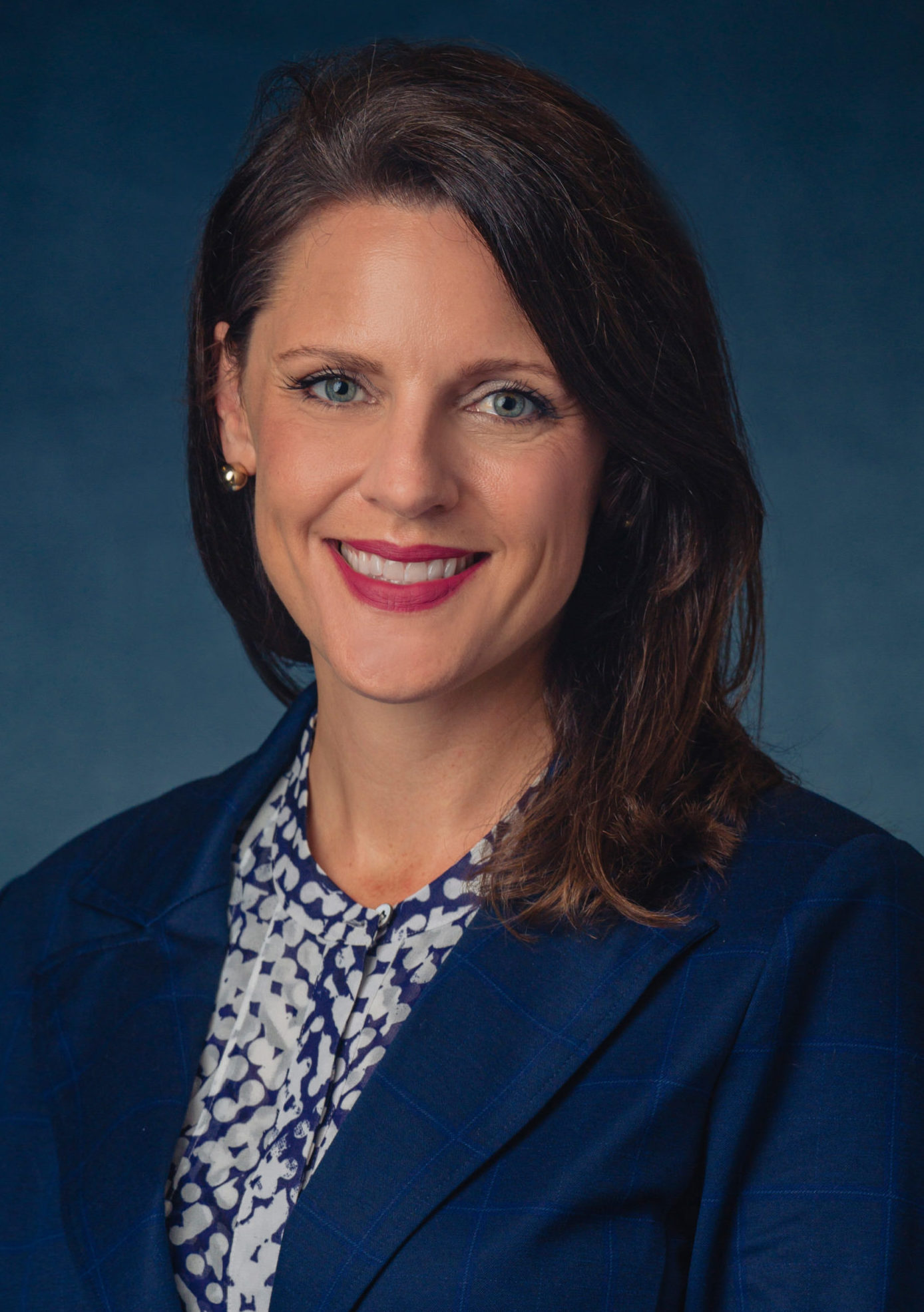 Susan Schaefer
Susan SchaeferSusan Schaefer has come far enough to appreciate that, even within the male-dominated construction sector, more women are entering the ranks every year. “More important to me,” she says, “we are seeing more stay in the construction industry”—a trend, she believes, that is reversing the historical dearth of female construction executives. As vice president of construction for the largest general contractor to call Kansas City its home, she’s at the vanguard of that change. “Women are realizing that they can have a successful career and the family life they always wanted,” Schaefer says. “Our companies are way more flexible and supportive than what we saw in the past.” She considers herself fortunate in that respect, because when she became a mother six years ago, there weren’t many success models to follow. “I had to pave my way with balancing project management and being a young mom,” she says. “I just did it though and had 100 percent support from those around me.” And her example today inspires more project managers seeking that very balance. They get help from the firm’s Moment Connection, an internal women’s networking group she co-founded four years ago. “Serving as the founding chair and helping grow the group to what it is today (thriving in all of our 22 offices around the country!) is certainly one of the (if not THE) most proud accomplishments of my career to date,” Schaefer says. That she even has a construction career flies a bit in the face of childhood experience. “When I was in grade school, I wanted to be a secretary,” she confesses. “It was the only executive or business position that I saw women in.” Later, accounting offered some appeal, but in her third year at OU, “I realized I needed more than just balance sheets and financial reports. I yearned for something more tangible.” Her exploration of options led to construction sci-ence and management, what she calls “the perfect combination of eng-ineering, design, building and business.” Her education complemented a value set derived from growing up in Enid, Okla., as one of three children in a blue-collar family. “My parents taught me the values of honesty, patience, grace and hard work,” she says, and her mater-nal grandparents nurtured “my ability to dream and have confidence in knowing I could accomplish anything,” she says. “They taught me the value of persistent hard work, and the importance of serving others and giving back to the community. It’s these core values (grace, honesty, empathy, servant leadership, drive and hard work) that have allowed my career to flourish as it has.”
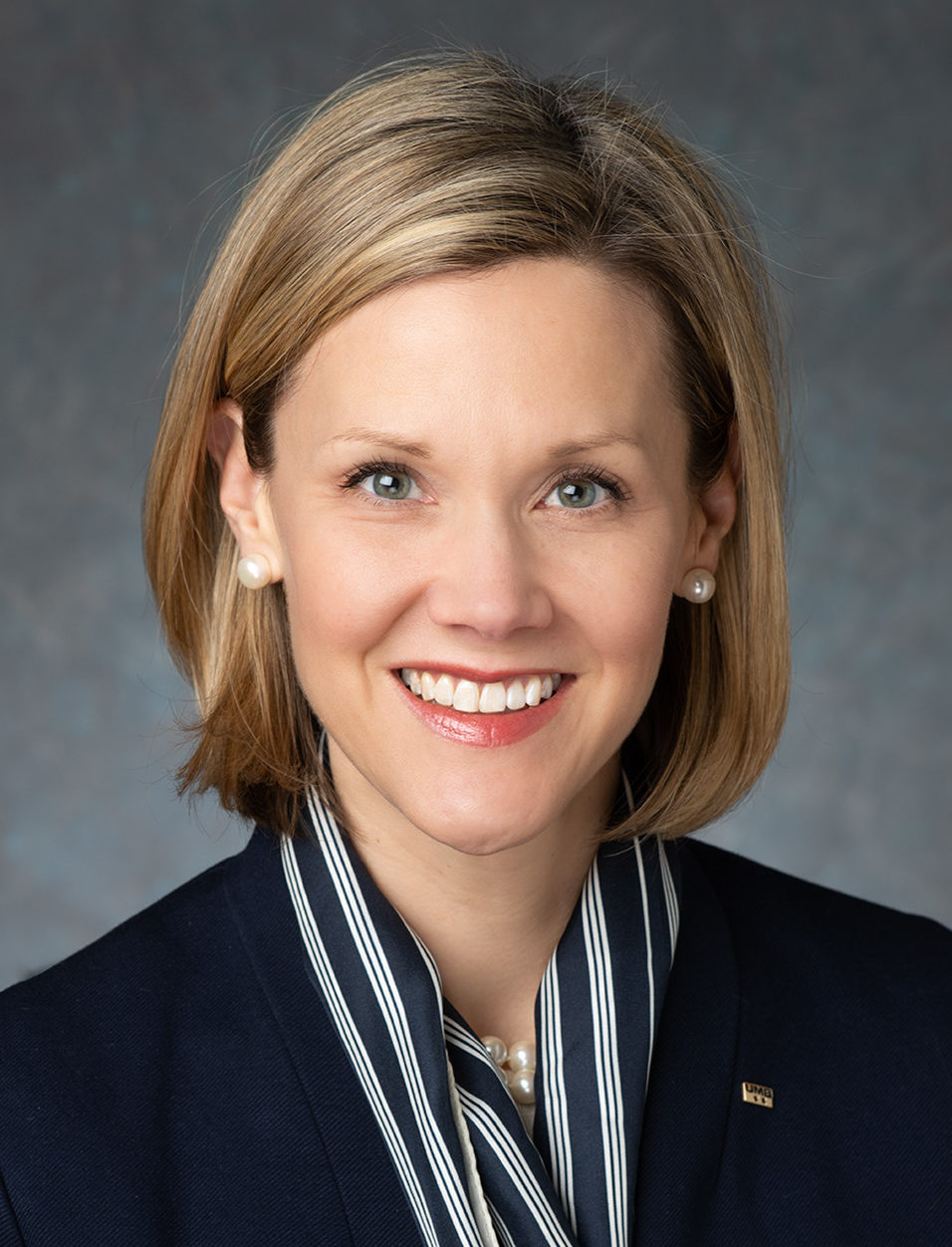 Abby Wendel
Abby WendelWatching her divorced mother work, raise two girls and engage in community and social circles left an impression on Abby Wendel. “My mom really taught me that although sometimes it’s not easy, it is possible to lead a fulfilling life as a working mom,” says the president of consumer banking for UMB Bank. “She was a strong role model and showed us the importance of hard work, community involvement and giving back.” After earning a degree in political science from the University of Colorado—where she would soon secure her MBA—Wendel landed a job at the Federal Reserve Bank’s office in Denver. It was a perfect mix of career and personal interests with outdoor attractions 14,000 feet tall. After six years there, she came to the Kansas City headquarters as public affairs manager, and before long, was immersed in the business culture here through the Centurions program. “Many say participation in that program is like earning a graduate degree in Kansas City, which I completely agree with,” Wendel says. “It was a great way to get to know the greater Kansas City region and learn and work alongside other leaders in the community.” It also led to connections that eventually opened doors at UMB, the market leader in deposit share. “Transitioning to a publicly traded company like UMB was intimidating, but I had a strong skill set and was fortunate to join UMB as the director of investor relations, which was really the perfect fit,” Wendel says. “It was an excellent way to get to know UMB, and my broad background coming from the Fed made me a good fit for the role.” It also gave her insight into the company, an inside understanding of what made it tick and how investors viewed it, she said. “Then, I had the opportunity to move around within the company, growing professionally and contributing in a variety of roles, such as chief strategy officer. UMB’s culture is similar to the Fed’s, so it was an easy transition.” Then came the great challenge facing many women in executive roles: Family. Early in her career, she says, “I distinctly remember conversations at the leadership table about whe-ther an associate or co-worker would be coming back to work after having a child. I always thought, ‘Why are we talking about that now?’ I knew I wanted to have kids and have a family, but I also knew that for me personally, in order to do what I wanted to do professionally, I was going to make having a family and a job work.” Women, she says, leave their careers for a number of reasons, as do men. “However, I believe being able to work and have a family should be something obtainable for everyone,” Wendel says. “This should be the norm, and looking back on my career so far, I’ve been so fortunate to have a great support system at home. I hope to be a resource for other working moms, as my mother was to me.”
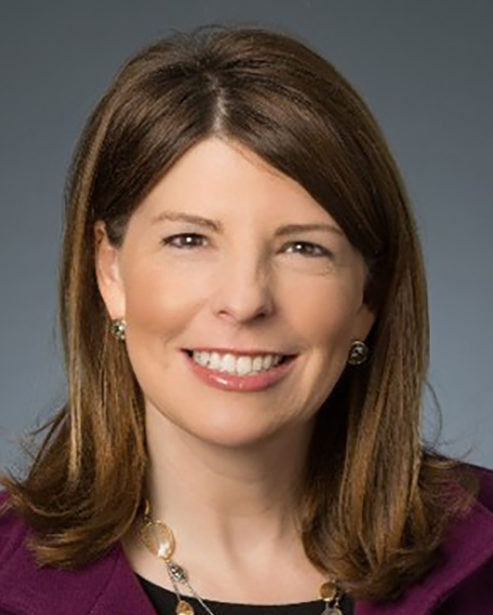 Kim White
Kim WhiteYou know that old saying about the best way to make God laugh is to tell him your life plan? Kim White can relate: “I started at Blue Cross and Blue Shield of Kansas City in 1997 as a strategic planning analyst and expected to be with the company for a couple of years,” she says. “Twenty-three years later, I’m still here and loving it.” Mind you: she’s not a strategic planning analyst any more. She’s senior vice president and chief administrative officer for the region’s largest private health-insurer. Her work addresses the health-care coverage needs of roughly 1 million area residents, and impacts more than 1,100 employees here. Not exactly what she had in mind when she left her small town in northeast Kansas for KU. She arrived there, she says, knowing that “I was fortunate to have good teachers and good role models who taught me the value of hard work, giving back and treating people well.” Her goal was a degree in speech pathology. “But it wasn’t the right fit—mostly for my future clients!” she wisecracks. “I considered other options, but chose psychology because I loved learning about the brain and behavior. Frankly, it still fascinates me.” White says she “wanted a career that would allow me to independently support myself, continue to learn and make a difference,” and she was fortunate to find her destination after just a few steps down the career path. By contrast, work-force professionals say most people in their lifetimes can expect not just to work for a series of employers, but to have a series of career paths. After KU, she earned a master’s in health administration from Mizzou, setting herself up nicely for a gig in the insurance sector, and the fit was perfect.“Blue KC is a great place to work,” she says. “I’ve learned from a lot of great mentors during my tenure at the company, both men and women. When I look back over the years, it’s easy for me to see many women being prepared for leadership positions by men and by other women. As we all strive for more diverse and inclusive cultures, those of us in leadership roles have an opportunity to think more broadly about succession planning and development of talent.” The work is challenging—especially since passage of the Affordable Care Act in 2010—and important, White says, “and the people are the best.” Armed with that frame of mind, she has found success in the guidance of a colleague who likes to say that, “if you do the right thing for the right reasons, things work out well most of the time.” As White says, “It’s been a pretty good rule by which to live and make decisions.”
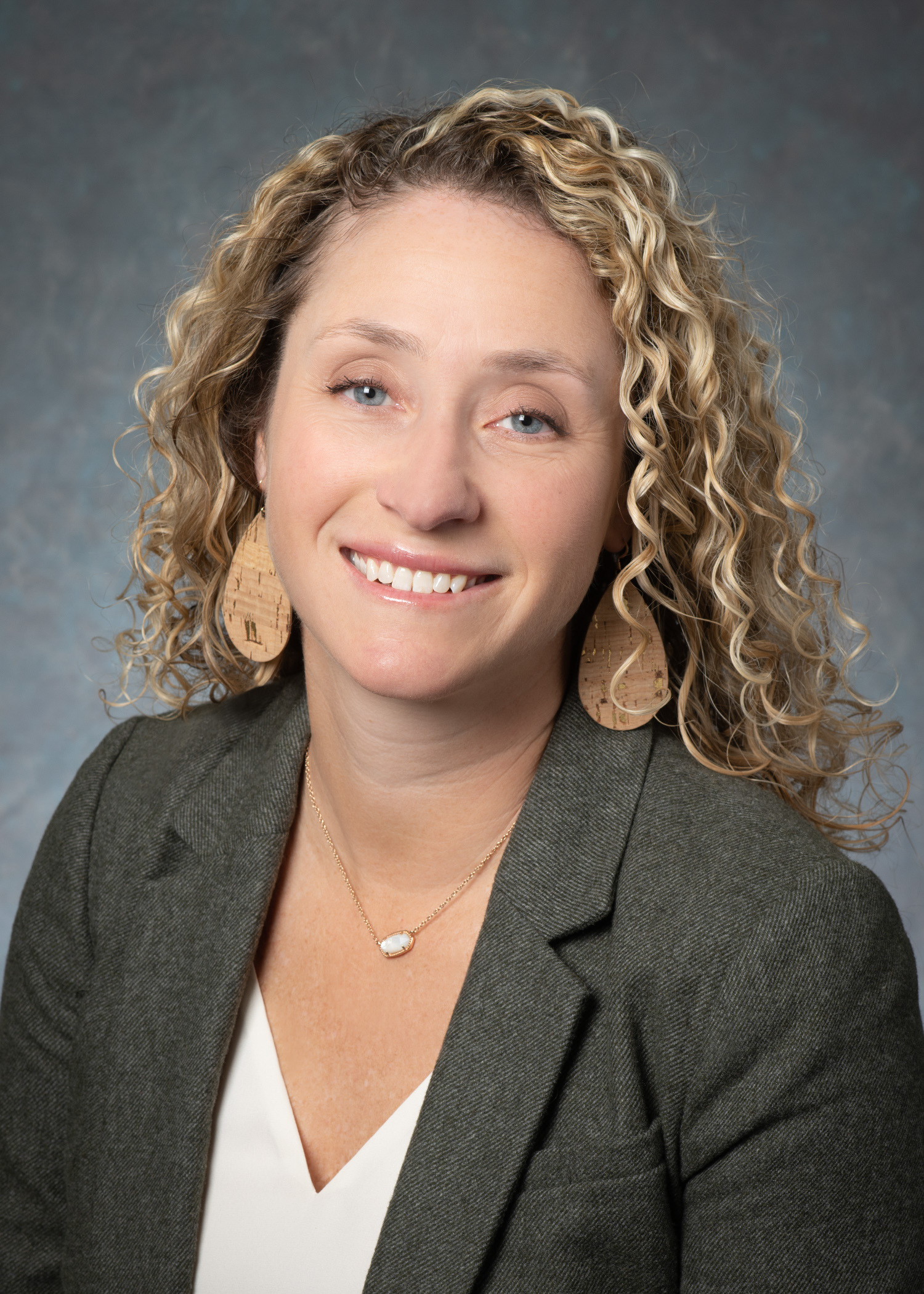 Shawna Wright
Shawna Wright“Executive leadership,” says Shawna Wright, “was always an aspiration, but not a specific goal. My main motivations have always been to keep learning, remain challenged and add value. Nothing is more satisfying than seeing someone on your team excel. I believe in giving others the same chances I had.” And she’s certainly made the most of those opportunities. She leveraged a business-administration degree from William Jewell to steadily rise through the human-resources ranks at Commerce Bank, a regional banking giant with $30 billion in assets. Her path to HR was influenced during her college sorority days. “I held several leadership roles that required me to deal with tough situations,” Wright recalls. “I am good at reading people and love solving problems. Seeing how I handled these situations, my sorority adviser encouraged me to pursue human resources.” She interviewed at Commerce as a college senior year—happy coincidence—just as an opening came up in the bank’s HR department. “I had no idea that taking that job would lead me to a long-term career at the bank,” says Wright, who is now director of talent management. “But it’s given me the opportunity to build relationships, develop people and serve as an adviser to leaders in the bank. I find immense satisfaction and gratitude for the chance to make an impact each day. At Commerce, I truly get to help others focus on what matters most.” Doing so means applying the guidance of her parents, who from an early age “taught me the importance of hard work, while instilling values of integrity and dedication and encouraging my quiet, competitive nature,” Wright says. Another key influencer she met in college became her husband, and “he has always been good at reminding me I can do anything I put my mind to,” Wright says. Then there have been leaders and mentors throughout her career who “challenged me with new oppor-tunities and pushed me just when I needed it,” she believes. In her current role with the bank, Wright is in a position to directly address the composition of the work force, and in a business sector where leadership is top-heavy with men. “Financial services can be a male-dominated industry, but I never let it bother me,” Wright says. “I just strove to do my best and got opportunities based on merit. I knew that women would be finding more opportunities.” And that they would make good on them: “We have so much to offer with our different perspectives and abilities. Organizations are so much more effec-tive with more voices at the table.”